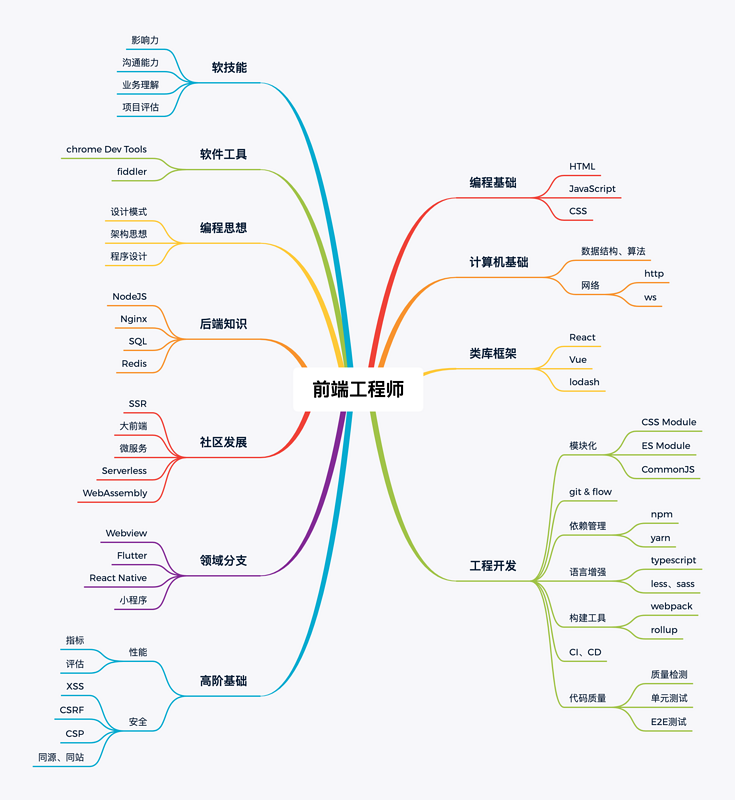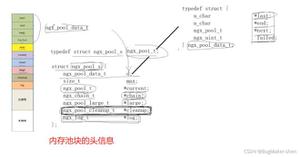哈弗曼树的建立
建立代码;
static int s1, s2;typedef struct {
unsigned int weight; //结点的权值
unsigned int parent; //结点的亲
unsigned int lchild; //左孩子
unsigned int rchild; //右孩子
char data; //数据
} HTnode, *Huffmantree;
typedef char **Huffmancode;
/* TODO: 查询两个权值最小的节点,赋值给s1,s2
功能描述:在ht[1]~ht[n]的范围内选择两个parent为0且weight最小的结点,其序号赋值给s1,s2
参数说明:ht-Huffmantree型树
n-int型 表示节点数
返回值说明:无
*/
void selectMin(Huffmantree ht, int n)
{
int min = 0, i;
// 选最小;
for (i = 0; i < n; i++)
{
if ((ht + i)->parent == 0)
{
min = i;
break;
}
}
for (i = 0; i < n; i++)
{
if ((ht + i)->parent == 0)
if ((ht + i)->weight < (ht + min)->weight)
min = i;
}
s1 = min;
//选次小
for (i = 0; i < n; i++)
{
if ((ht + i)->parent == 0 && i != s1)
{
min = i;
break;
}
}
for (i = 0; i < n; i++)
{
if ((ht + i)->parent == 0 && i != s1)
if ((ht + i)->weight < (ht + min)->weight)
min = i;
}
s2 = min;
}
/* TODO: 建立哈弗曼树。
功能描述:根据键盘输入创建哈弗曼树,期间调用selectMin函数实现,给生成的父结点的data赋值为减号-,打印输出用以下格式。
printf("%c%4d%4d%4d%4d\n", ht[i].data,ht[i].weight, ht[i].parent, ht[i].lchild,ht[i].rchild);
参数说明:ht-Huffmantree型树
n-int型 表示节点数
w-int型指针 表示权值
d-char型指针 表示节点数据
返回值说明:Huffmantree型树
*/
Huffmantree createHuffmanTree(Huffmantree ht, int *w, int n, char *d) {
int i, m;
// 申请空间;
m = 2 * n-1;
ht = (Huffmantree)malloc(sizeof(HTnode)*m+1); // 从i=1开始写入;
//对n个结点进行初始化 ;
for (i = 1 ; i < n+1 ; i++)
{
(ht + i)->data = d[i-1];
(ht + i)->weight = w[i-1];
(ht + i)->lchild = 0;
(ht + i)->rchild = 0;
(ht + i)->parent = 0;
}
// 对剩余的结点初始化
for (i = n+1; i < m+1; i++)
{
(ht + i)->weight = 0;
(ht + i)->lchild = 0;
(ht + i)->rchild = 0;
(ht + i)->parent = 0;
}
//添加结点;
for (i = n+1; i < m+1; i++)
{
selectMin(ht, i);
(ht + s1)->parent = i;
(ht + s2)->parent = i;
(ht + i)->lchild = s1;
(ht + i)->rchild = s2;
(ht + i)->weight = (ht + s1)->weight + (ht + s2)->weight; //权重相加;
(ht + i)->data = '-';
}
for(i=1;i<m+1;i++)
printf("%c%4d%4d%4d%4d\n", ht[i].data, ht[i].weight , ht[i].parent, ht[i].lchild, ht[i].rchild);
return ht;
}
函数的调用:
Huffmantree ht = NULL; //输入一个哈夫曼树型指针; Huffmancode hc = NULL; //字符指针;
int *w = NULL;
char *d = NULL;
int i;
int n;
printf("请输入节点数\n");
scanf_s("%d", &n); //申请空间;
w = (int *)malloc(n * sizeof(int));
d = (char*)malloc(n * sizeof(char));
printf("请输入节点的权值以及字符,先输入权值后输入字符并且两者之间无空格\n");
for (i = 0; i < n; i++) {
scanf_s("%d%c", &w[i], &d[i]);
}
printf("输出哈夫曼树的存储结构\n");
ht = createHuffmanTree(ht, w, n, d);
printf("哈弗曼编码已建立!\n");
实际输出
标准答案:
A 2 8 0 0
B 3 8 0 0
C 4 9 0 0
D 5 9 0 0
E 6 10 0 0
F 7 11 0 0
G 8 11 0 0
- 5 10 1 2
- 9 12 3 4
- 11 12 5 8
- 15 13 6 7
- 20 13 9 10
- 35 0 11 12
除了斜体加粗部分其余的均相同,那个大神来解释一下问题出在哪???
回答:
今天查看了一下所有的用例发现对所有选择出的s1 和s2 进行比较 s1始终为最小值就能得出想要的果
添加代码:
int tem=0;if(s1>s2)
{
tem =s1;
s1=s2;
s2=tem;
}
操作令人迷惑,这样还是构建的哈夫曼树有什么好处啊,感觉只是将左孩子位接 序号小的 右孩子接序号大的;???
以上是 哈弗曼树的建立 的全部内容, 来源链接: utcz.com/p/194265.html








